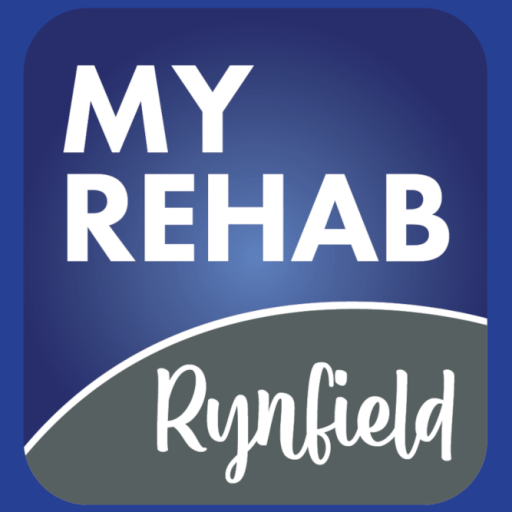
Benefits of Inpatient Rehab
Benefits of Inpatient Rehab
Inpatient rehab offers you crucial support and supervision for your recovery. With a dedicated team of professionals, you’re guided through personalized treatment plans in a structured environment. This helps you develop essential coping skills and confront challenges without external distractions. You’ll also benefit from a strong community of peers, fostering connections that inspire and hold you accountable. Focused time in rehab allows for personal growth and self-discovery, paving the way for a healthier life ahead. There’s even more to explore about the journey to recovery.
Comprehensive Support and Supervision
When you choose inpatient rehab, you’re not just getting treatment; you’re receiving thorough support and supervision that’s vital for recovery. Throughout your stay, a dedicated team of professionals is there to guide you, ensuring you have access to medical care, counseling, and emotional support. This constant supervision helps you navigate challenging moments and stay focused on your goals. You’ll benefit from individualized treatment plans tailored to your specific needs, allowing you to address the root causes of your addiction. Additionally, you’ll connect with peers who understand your struggles, fostering a sense of community and shared purpose. This extensive support system plays an important role in building a strong foundation for lasting recovery and helping you reclaim control over your life. Furthermore, the multidisciplinary treatment team works collaboratively to provide comprehensive care that addresses all aspects of your recovery journey.
Structured Environment for Healing
In a structured environment, healing becomes more attainable as you focus solely on your recovery journey. Inpatient rehab offers a setting designed to minimize distractions, allowing you to immerse yourself in the process. With a consistent daily schedule, you engage in therapy sessions, group activities, and personal reflection, all aimed at supporting your progress. This structure helps establish routine, promoting stability in your life during a time of change. You’ll also benefit from the presence of professionals who guide you through each step, ensuring you feel safe and supported. The absence of external pressures allows you to confront your challenges head-on, fostering an atmosphere where healing thrives. Embrace this opportunity to prioritize your well-being and regain control over your life.
Development of Coping Skills
As you progress through inpatient rehab, you’ll actively develop essential coping skills that empower you to handle life’s challenges. You’ll learn techniques to manage stress, cravings, and triggers effectively. Through various therapeutic activities, you’ll gain insights into your emotions and behaviors, helping you respond rather than react to difficult situations.
Practicing mindfulness and relaxation strategies will become part of your routine, allowing you to stay grounded during tough moments. You’ll also engage in role-playing scenarios, equipping you with practical approaches to navigate social pressures.
Community and Peer Support
Building a strong network of community and peer support can greatly enhance your recovery journey. Surrounding yourself with others who understand your struggles fosters a sense of belonging and encouragement. In inpatient rehab, you’ll connect with individuals who share similar experiences, allowing you to share insights, challenges, and victories. This shared understanding can help reduce feelings of isolation and empower you to stay committed to your goals.
Participating in group activities and discussions creates bonds that often extend beyond rehab. These relationships can provide ongoing support as you adapt back to everyday life. Engaging with peers not only offers accountability but also inspires you to stay focused on your recovery. Together, you can celebrate milestones and navigate obstacles, making the journey feel less intimidating.
Focused Time for Personal Growth
While you’re immersed in the structure of inpatient rehab, you gain invaluable focused time for personal growth. This environment allows you to step away from daily distractions and truly reflect on your life. With dedicated therapy sessions and workshops, you’ll explore underlying issues that may have contributed to your struggles. You can set personal goals and develop new coping strategies, all while being supported by professionals and peers. This focused time encourages self-discovery, helping you to understand your triggers and strengths. As you engage with various activities, you’ll build resilience and gain insights that can transform your mindset. Ultimately, this period of concentrated effort fosters the growth you need to create a healthier, more fulfilling life.
Frequently Asked Questions
How Long Does Typical Inpatient Rehab Treatment Last?
Typical inpatient rehab treatment usually lasts from 30 to 90 days, depending on individual needs. You’ll undergo assessments to determine the best duration for your recovery, ensuring you receive the support necessary for lasting change.
What Types of Therapies Are Offered in Inpatient Rehab?
In inpatient rehab, you’ll encounter various therapies like individual counseling, group therapy, art therapy, and cognitive behavioral therapy. Each one’s designed to address different aspects of recovery, helping you heal and grow on your journey.
Are Family Members Allowed to Visit During Treatment?
Yes, family members are usually allowed to visit during treatment, but specific policies can vary by facility. It’s best to check with the rehab center for their visiting hours and any guidelines they have.
What Happens After Completing Inpatient Rehab?
After completing inpatient rehab, you’ll shift to outpatient services, focusing on ongoing support and recovery. You’ll also develop coping strategies, attend therapy sessions, and connect with support groups to maintain your progress and prevent relapse.
Is Insurance Typically Accepted for Inpatient Rehab Services?
Most insurance plans do cover inpatient rehab services, but it varies by provider. You should check your specific policy details to understand what’s included and whether you’ll need prior authorization for treatment.
Inpatient rehab offers you a wealth of benefits that can greatly enhance your recovery journey. With extensive support and supervision, a structured environment, and the opportunity to develop coping skills, you’re set up for success. Plus, the community and peer support you find can make all the difference. By dedicating focused time for personal growth, you’ll not only heal but also emerge stronger and more equipped to handle life’s challenges. Embrace this transformative experience!
